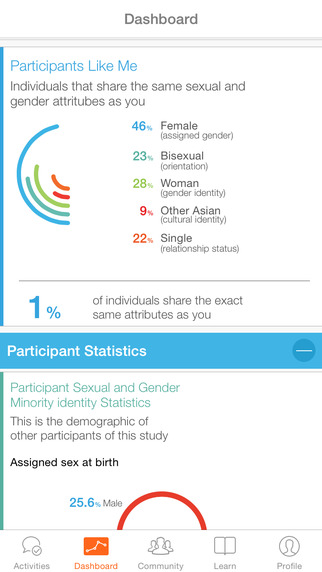 The University of California San Francisco has launched a longitudinal study of lesbian, gay, bisexual, transgender, queer (LGBTQ) and other sexual and gender minority (SGM) adults to examine how their sexual orientation affects their health.
The University of California San Francisco has launched a longitudinal study of lesbian, gay, bisexual, transgender, queer (LGBTQ) and other sexual and gender minority (SGM) adults to examine how their sexual orientation affects their health.
The study is called PRIDE and stands for population research in identity and disparities for equality. Researchers will collect data for the study using an iPhone app and will sync the app with Apple's ResearchKit, which was first announced in early March.
When the study first launched, researchers will ask participants to express their health concerns so that researchers can then crowdsource health topics that are important within the LGBTQ community. Six to nine months after crowdsourcing topics, researchers will start releasing questionnaires annually that take 30 minutes to complete. The app will also collect sensor data from HealthKit.
"LGBTQ people continue to face significant health issues stemming from discrimination, stigma, and a lack of information about how our identities affect our health," PRIDE study co-director Mitchell Lunn said in a statement. "We hope this study, which will be designed with significant input from the LGBTQ community itself, will change all that."
Some information that may be collected includes basic information about disease risk factors, like smoking; wellness activities, like exercise; and stress levels.
"Lesbian women are twice as likely to be obese than straight women, and we don't know why," PRIDE study co-director Juno Obedin-Maliver said in a statement. "That makes lesbian women susceptible to all kinds of health risks. It's the mission of The PRIDE Study, to research and get to the bottom of these kinds of LGBTQ health issues, and The PRIDE Study iPhone app will give us access a much wider population than previously possible."
The PRIDE Study will launch in early 2016.
A few weeks after the first studies launched on ResearchKit, researchers reported that enrollment was already higher than previous studies had collected in a year. One such study, called MyHeart Counts, which is conducted by Stanford Medicine, received 11,000 sign ups one day after the app was announced.

















